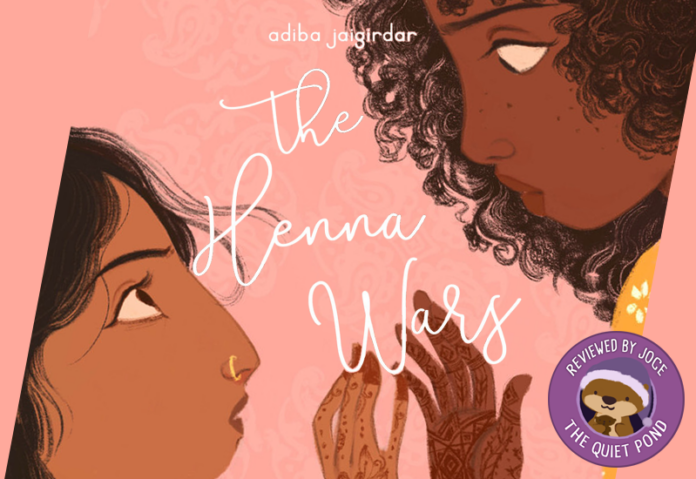By Mia Miller
The Henna Wars by Adiba Jaigirdar is an excellent book for those looking for something easy to read, yet also thought provoking. Since its publication in 2020, this book has been praised in many LGBTQ+ reading circles for the mature way it handles serious topics, while also being humorous and lighthearted at points where it is necessary.
The story follows the perspective of Nishat; a South Asian teenager living in Ireland who is given the task of juggling several complicated struggles at once. Throughout the story she faces prejudice for who she is on the outside as she comes across racism from her white classmates, and later having to watch the same people who bullied her for her culture profit off of the very culture they mocked. While this is going on, she also has to deal with the internal struggle of coming to terms with being a lesbian while living in a non-accepting household.
One particular scene that stood out to me was towards the beginning when Nishat has a flashback to a party she once attended. She is not blatantly mocked for her name, but when Nishat tells the others her name, there is some awkward tension as her peers judge her for not having a ‘normal’ name. Nishat is then asked to leave. While she sits outside waiting to be picked up by her mom, she overhears a white girl named Chyna being praised for her ‘unique’ name. This is a scene that has particularly stuck in my memory, even months after my first time reading the story. I believe it does a great job at ‘show don’t tell’. It shows the reader the bias Nishat’s peers have without straight out saying it to the reader.
As much as I do love this book, there are also some moments in which the story relies on some cliché tropes in order to further the plot, but in the grand scheme of things that is a very minor critique. Even though these tropes are used, Adiba Jaigirdar often goes out of their way to try and put a twist on them in order to avoid veering into the conventional high school romance tale, holding onto the reader’s interest.
Despite hitting nearly 400 pages in length, The Henna Wars still manages to be an easy read as the vocabulary isn’t difficult and the plot points are easy to digest and follow. This book can be a great leisure read, while also being a way for white straight people to get some perspective on what life can be like for LGBTQ+ people of color.
I highly recommend reading The Henna Wars if you’re looking for a relaxing summer read, or if you are looking for some decent LGBTQ+ representation that isn’t all white people. ,m.










